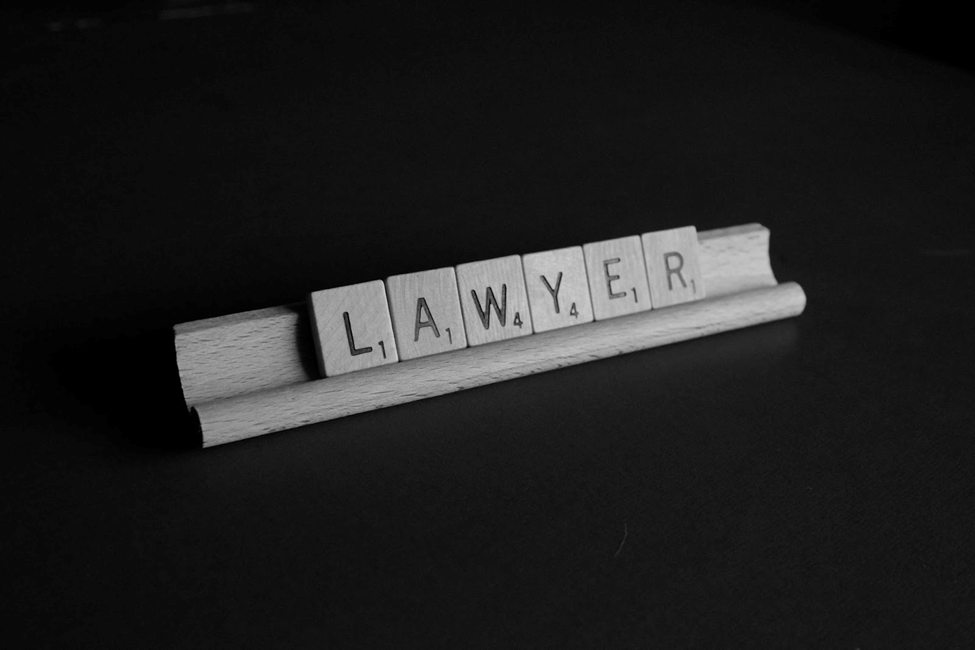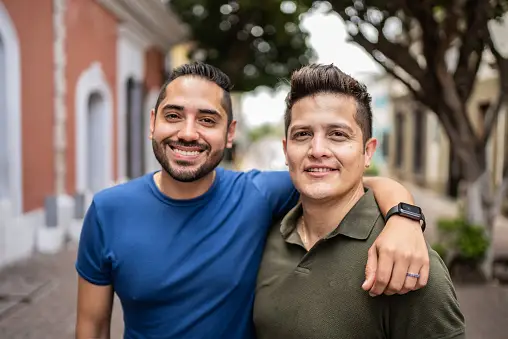Divorce is a complex and emotional process. This complexity is further amplified in the context of same-sex divorces. As societal attitudes and legal frameworks evolve to recognize and protect LGBTQ+ rights, the dynamics of gay divorce present unique challenges and considerations. This essay explores the intricate facets of gay divorce, focusing on the navigation of child custody, encountering legal challenges, and fostering emotional resilience within the LGBTQ+ community.

Understanding the Legal Framework for Gay Divorce in Texas
The legal landscape surrounding gay divorce varies significantly across jurisdictions, with some regions offering robust protections and recognition of same-sex relationships while others may lack adequate legal frameworks. In jurisdictions where same-sex marriage is recognized, divorces are typically processed through the same legal channels as heterosexual divorces. However, nuances may arise concerning property division, spousal support, and parental rights, highlighting the importance of legal expertise tailored to the specific needs of LGBTQ+ individuals.
Here are some key aspects of the legal context surrounding the unique dynamics of gay divorce, as aforementioned:
1. Recognition of Same-Sex Marriage:
In jurisdictions where same-sex marriage is legally recognized, the process of gay divorce typically follows the same legal procedures as heterosexual divorce. This includes filing for divorce and resolving issues such as property division, spousal support, and child custody through the court system.
2. Jurisdictional Issues:
Same-sex couples may face jurisdictional challenges in cases where they were married in one jurisdiction but reside in another that does not recognize their marriage. This can complicate the divorce process and require legal expertise to navigate cross-border legal frameworks.
3. Property Division:
Property division in gay divorce may involve complex considerations, especially if the couple acquired assets or property before same-sex marriage was legally recognized. In community property states like Texas, assets acquired during the marriage are generally considered community property and subject to division, regardless of the gender or sexual orientation of the spouses.
4. Parental Rights:
Same-sex couples may face unique challenges in asserting parental rights, particularly if they have children through methods such as adoption, surrogacy, or assisted reproductive technologies. In cases where only one spouse is a biological or adoptive parent, non-biological/non-adoptive parents may need to establish legal parental rights through adoption or other legal means.
5. Spousal Support:
Spousal support, also known as alimony, may be awarded in gay divorces based on the length of the marriage, each spouse’s financial situation, and their respective contributions to the marriage. However, in some jurisdictions, the availability of spousal support may be limited or subject to different legal standards for same-sex couples compared to heterosexual couples.
6. Legal Challenges:
Despite advancements in LGBTQ+ rights, legal challenges may arise in gay divorces, particularly in jurisdictions where same-sex marriage is not universally recognized or where discriminatory laws persist. Same-sex couples may encounter obstacles in accessing divorce proceedings, enforcing property division orders, or asserting parental rights, necessitating legal expertise to navigate these challenges effectively.
Overall, the legal context surrounding gay divorce is influenced by a complex interplay of jurisdictional laws, societal attitudes toward LGBTQ+ relationships, and the specific circumstances of each case. As legal frameworks continue to evolve to reflect the diverse realities of modern families, addressing the unique dynamics of gay divorce requires comprehensive legal knowledge and advocacy for equitable treatment under the law.
Navigating Child Custody in Gay Divorce
Child custody disputes are often a focal point in divorce proceedings, and same-sex couples may encounter unique challenges. Here are some ways gay divorce couples may navigate child custody:
1. Legal Representation
Gay divorce couples often seek legal representation from attorneys experienced in LGBTQ+ family law. These attorneys can guide relevant state laws, court procedures, and strategies for asserting parental rights.

2. Establishing Parental Rights
In cases where both spouses are legal parents, either through adoption, surrogacy, or assisted reproductive technologies, establishing parental rights may be relatively straightforward. However, only one spouse is the legal parent. In that case, the other spouse may need to pursue legal avenues such as second-parent adoption or co-parenting agreements to establish parental rights.
3. Child-Centered Approach
Courts prioritize the best interests of the child when determining custody arrangements. Gay divorce couples may work with mediators or child custody evaluators to develop parenting plans that address the child’s needs and ensure ongoing involvement from both parents.
4. Co-Parenting Agreements
Gay divorce couples may negotiate co-parenting agreements that outline custody, visitation schedules, decision-making authority, and other aspects of co-parenting post-divorce. These agreements can provide clarity and structure while promoting cooperation and communication between the co-parents.
5. Court Adjudication
When couples cannot agree on child custody, the court may intervene to determine custody based on the child’s best interests. Gay divorce couples may present evidence and arguments to support their desired custody arrangements, with the court ultimately issuing a custody order.
6. Considering State Laws
Gay divorce couples need to consider the specific laws and legal precedents in their state regarding same-sex relationships and child custody. Some states may have more favorable legal protections for LGBTQ+ parents, while others may lack explicit legal recognition or protections.
7. Parenting Coordination
In high-conflict cases, gay divorce couples may engage a parenting coordinator or family therapist to assist with communication, conflict resolution, and co-parenting strategies to promote the child’s well-being.
Overall, navigating child custody as part of a gay divorce requires careful consideration of legal rights, effective communication, and a focus on the child’s best interests. By seeking legal guidance, engaging in cooperative processes, and prioritizing the child’s needs, gay divorce couples can work towards establishing sustainable custody arrangements that support the well-being of their children.
Legal Challenges
Despite significant advancements in LGBTQ+ rights, legal challenges persist in the realm of gay divorce. In jurisdictions where same-sex marriage is not legally recognized, gay divorcees may encounter challenges in accessing the divorce process. They may need to navigate complex legal procedures to dissolve their marriage, potentially facing additional barriers or discrimination compared to heterosexual couples.
Another challenge is property division. In gay divorces, property division may be complicated by factors such as joint ownership of assets acquired before or during the marriage, as well as disparities in income and financial contributions between the spouses. In community property states like Texas, equitable distribution of assets may be challenging if state laws do not explicitly recognize same-sex marriages or provide clear guidelines for property division. The availability of spousal support, also known as alimony, may vary depending on the jurisdiction and the specific circumstances of the divorce.
Child custody disputes can be particularly complex for gay divorcees, especially if the children were born or adopted during the marriage. Gay divorcees may face challenges in asserting parental rights, particularly if only one spouse is the biological or adoptive parent. In some cases, non-biological/non-adoptive parents may need to pursue legal avenues such as second-parent adoption or co-parenting agreements to establish parental rights.
Furthermore, gay divorcees with ties to multiple jurisdictions, such as couples who married in one state but reside in another, may face legal challenges concerning jurisdictional issues, enforcement of court orders, and recognition of legal rights across state or national borders. Overall, gay divorcees may encounter a range of legal challenges that require careful navigation and advocacy to ensure fair and equitable outcomes in the divorce process.
Emotional Resilience
Gay divorced couples need emotional resilience as they navigate the challenges and adjustments that accompany the end of a marriage. Here are some strategies and considerations for fostering emotional resilience:
Seek Support:
Building a strong support network is essential for emotional resilience. Gay divorced couples can lean on friends, family members, or support groups who understand their unique experiences and challenges. Additionally, seeking out LGBTQ+-friendly therapists or counselors can provide professional support and guidance through the emotional process of divorce.
Practice Self-Care:
Taking care of oneself physically, mentally, and emotionally is key to resilience. Encourage gay divorced couples to prioritize self-care activities such as exercise, mindfulness practices, hobbies, and relaxation techniques. Getting enough rest, eating well, and engaging in joyful and fulfilling activities can help manage stress and promote emotional well-being.
Process Emotions:
Allow space for processing and expressing emotions related to the divorce. Gay divorced couples may experience a range of emotions, including grief, anger, sadness, and relief. Encourage open and honest communication about feelings and concerns while recognizing that everyone copes with divorce differently and at their own pace.
Set Boundaries:
Establishing boundaries with ex-partners and others involved in the divorce can help maintain emotional stability. This may include setting limits on communication, defining co-parenting roles and responsibilities, and creating space for personal healing and growth.
Focus on Children:
For gay divorced couples with children, prioritizing the well-being of the children can provide a sense of purpose and direction during the divorce process. Collaborate on co-parenting strategies that prioritize the children’s needs and minimize conflict. Encourage open communication with children about the divorce in an age-appropriate manner while reassuring them of the love and support from both parents.
Practice Mindfulness:
Mindfulness practices, such as meditation, deep breathing exercises, and mindfulness-based stress reduction techniques, can help gay divorced couples stay grounded and present in the moment. Mindfulness can cultivate self-awareness, emotional regulation, and acceptance of difficult emotions, essential to emotional resilience.
Seek Professional Help:
Encourage gay divorced couples to seek professional help if they are struggling to cope with the emotional challenges of divorce. LGBTQ+-friendly therapists, counselors, or support groups can provide specialized support and guidance tailored to their unique needs and experiences.
Focus on the Future:
Encourage gay divorced couples to focus on building a positive and fulfilling future for themselves and their families. Set goals, explore new opportunities, and embrace personal growth and development as they move forward after divorce.
By implementing these strategies and prioritizing emotional well-being, gay divorced couples can cultivate resilience, navigate the challenges of divorce, and move forward with strength and positivity in their lives.

Conclusion
Gay divorce represents a complex intersection of legal, social, and emotional dynamics, necessitating nuanced approaches to navigate child custody, legal challenges, and emotional resilience. As societal attitudes continue to evolve and legal frameworks adapt to reflect the diverse realities of LGBTQ+ relationships, advocating for equitable treatment and comprehensive support for LGBTQ+ individuals undergoing divorce is imperative. By fostering inclusive legal practices, promoting emotional well-being, and advocating for systemic change, society can strive towards creating a more equitable and affirming environment for all individuals navigating the complexities of divorce, regardless of sexual orientation or gender identity.








